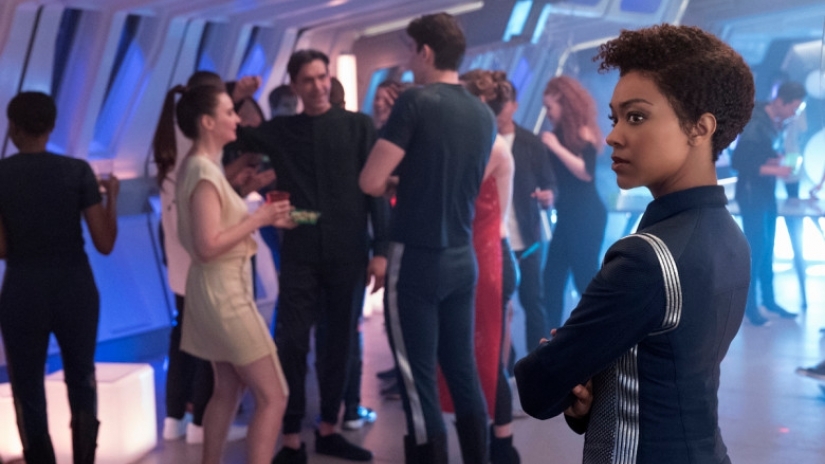
On Friday, Oct 19th at 11:00 in Alan Walters 112 (Seminar Room 3), we’re going to screen ‘Magic to make the Sanest Man Go Mad’, the 7th episode of Discovery, and then have a chat about it. Chairing the discussion are visiting speakers Sabrina Mittermeier and Marieke Spychala, the editors of the first academic collection on Discovery (currently under consideration by Liverpool UP).
“The Franchise and its Discontents – Questions of Genre, Canon, and Narrative in Star Trek: Discovery”
Mareike Spychala, M.A. & Dr. des Sabrina Mittermeier
After a notable absence of new Star Trek TV series since 2005, when Star Trek: Enterprise (2001-2005) ended its four-season run, the franchise returned to the small screen in 2017 with Star Trek: Discovery (2017-ongoing). This newest entry into the franchise, set ten years before The Original Series repeatedly gestures to and evokes older iterations of the franchise, for example by bringing back Harry Mudd, a recurring adversary of Captain Kirk’s. Nonetheless, Discovery presents its own take on the canon, updating, for example, the look of the Klingons and the interior of the ships. In addition, it moves away from the episodic storytelling that has characterized earlier Star Trek series, continuing a trend that started with Star Trek: Deep Space Nine (1993-1999) and Star Trek: Voyager (1995-2001). Discovery, then, lends itself well to explorations of generic storytelling and its possibilities and limitations, especially in a franchise as large and beloved as Star Trek.
The first season’s seventh episode, “Magic to Make the Sanest Man Go Mad” not only presents a time loop plot—a trope that has long been established in Science Fiction and previously most famously adapted to Star Trek during the Star Trek: The Next Generation (1987-1994) episode “Cause and Effect” (1992)—but also a heist narrative, elements of a detective narrative, and even aspects of the romance genre. We propose a short analysis of how this episode, probably the most episodic of the shows first season, negotiates these different generic elements, while also connecting its events to the larger arc of the season, and exploring the development of several of its main characters. In addition to exploring these questions related to genre and storytelling, we will also talk about balancing fan engagement and academic analysis of a text like Discovery, which, despite its self-contained first season, will continue to evolve and change with its upcoming seasons.
For more information about the event, please contact Will Tattersdill (W.J.Tattersdill@bham.ac.uk).
